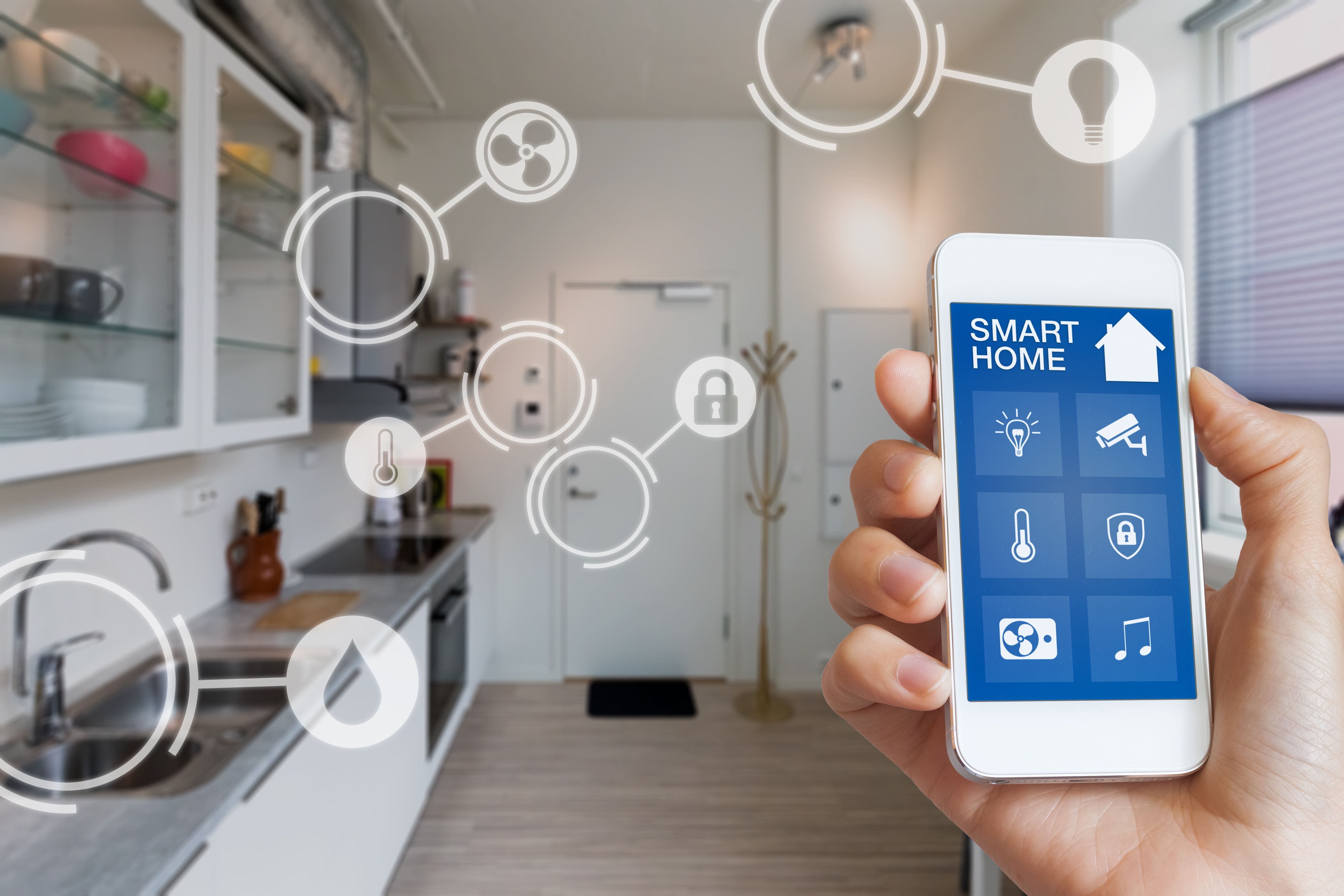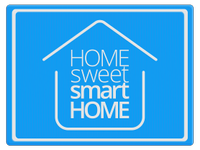Tom’s Guide asks: What do you want in a smart home?


The smart home exists to make our lives easier. You can automate chores like cleaning your floors with a robot vacuum, save energy by having smart lights turn on or off automatically when you enter a room, or use a smart thermostat to create a more comfortable atmosphere. In a perfect world, we can manage this all from a single place and easily share controls with family members.
While setup and performance have improved leaps and bounds over the years, smart homes still have their hiccups. These can derail your day just as easily as they streamline it should a device go unresponsive when you need it for a task. And with different wireless protocols, you still need hubs. Still, there are so many new devices and expanding categories like accessible smart blinds and generative AI integrations. So, we polled the Tom's Guide staff to ask them where they think smart home technology is headed, and what they want out of the smart home in the future. Read on to find out what they said.
Matter is going to have to matter

I like variety when it comes to smart home platforms. At night I’ll use my iPhone to turn off the Kasa smart plugs connected to the floor lamps in my bedroom. After I’ll tell Alexa to run my Goodnight routine to lock up my house and arm my security system. And as I sleep my Google Nest Hub uses radar and microphones to track my rest quality. All of this is fragmented by different apps and services that have to be linked to each smart home platform. The universal Matter protocol already allows devices to be discoverable and controllable regardless of the smart home platform but it needs more pick up from gadget manufacturers.
More than AI telling me how to cook a meal or the thought of having a robot butler do my bidding, I’ll be truly satisfied to have a seamless smart home. I envision a single-panel touchscreen experience like the Echo Hub offers now complete with widgets, live camera feeds, and device controls available at a tap. But instead of being stuck to an Alexa smart home, I’d be able to view a Nest Cam (battery) or a HomeKit-specific video doorbell from a single place. Amazon already has Matter casting in its early stages but imagine sharing content from your phone to any screen whether it’s a laptop, TV, smart display, or even gaming system. The freedom of choice and ease of discoverability to just see and control my devices from anywhere on the fly is what I’d appreciate the most over the next few years.
The ambient smart home is the only smart home

The limitations of the current smart home come from the continued reliance on manual controls. Unless you’re a master at setting up routines — in which the action or input of one smart home device triggers other devices in one — you inevitably end up fumbling between apps and voice assistant commands. It only gets more complicated the more people who share the same home, too.
Rather, I’d want to see more intelligence-powered ambient actions in the smart home. Imagine if your smart home could regularly and accurately predict what you want to happen based on your habits, daily schedule, or even sensor data from a smartwatch. It could manage your energy usage based on the grid demand automatically, waiting to run the loaded dishwasher or washing machine until just the right time. It could lower the temperature of the room just by sensing there are more people causing the space to warm up. It could automatically preheat the oven and do an ingredient scan in your fridge when you pull up a recipe on your smart display. Simply put, the perfect smart home should know what I need to happen before I do.
It all starts at the center of the living room

Despite the moniker “Smart TV,” our displays don’t do a whole lot for us beyond simply acting as windows into the best streaming services and assorted gaming platforms. Thus, what if they could do so much more? Do away with the Amazon Echo and Google Nest Hub in favor of the one thing that will always remain in your living space — the TV.
Get instant access to breaking news, the hottest reviews, great deals and helpful tips.
It comes as no surprise that this concept is already hot on the mind of many home entertainment solution specialists, chief among them being Google TV executive Rob Caruso. With TV speakers and chipsets ever-evolving, our displays will no sooner become the home’s main smart ecosystem.
It’s already happening in the likes of Samsung and LG, both of which have equipped their 2024 TV interfaces with smart home concepts. And it will only improve over time with more streamlined ambient controls, always-on-displays, AI enhancements, and interoperability across all of our devices.
I mean why should the TV only serve as a mere gateway into entertainment? Shouldn’t it be able to do so, so much more for us? I think so, but there certainly are a plethora of concerns on this notion.
It’s got to be as easy as switching on a light

I’ve tested a lot of smart home devices in my home, and because of my early-adopter enthusiasm, I’m a little more forgiving when something doesn’t work the way it should right away. My wife is far less tolerant, and is a good sense check. She quickly gets exasperated if a smart light switch doesn’t turn on right away, if smart blinds don’t open or close properly, or if it takes too long to get Alexa to give us a proper response.
And I suspect that’s what it’s like for the majority of consumers who are unsure if they want to add smart home devices. Smart lights, locks, and switches have got to work just as well when the Internet is down, and be just as quick as the old-school devices they’re replacing.
When it comes to smart assistants, she has even less patience. Anytime Alexa answers from the wrong room, doesn’t do what she wants, or asks if we want to hear what else it can do, I get a nasty glare as if to say “do we really need this in the house?”
Smart home devices need to not only become smarter, but also as reliable as the devices they’re replacing. We’re getting there, but not quite yet.
You won’t even have to think about it

During the Consumer Electronics Show (CES) earlier this year, not one but two leading home appliance manufacturers demonstrated AI-powered mini robots that could hook into your smart home and act as a virtual butler, controlling everything and keeping it in check.
The world of artificial intelligence itself is moving towards a similar system, where you have controlling AIs that can send niche, customized models off to perform tasks on your behalf such as booking a flight, contacting a family member or arranging your diary. This is known as agentic AI and an early version of this was demonstrated by Apple with its new Siri.
As these agents become smarter they will also integrate with your home appliances, your online shopping services and even maintenance providers, taking all household and smart home management out of your hands. You won’t even have to think about it after you buy and setup your AI butler.
What this means is you can have a more deeply integrated smart home, where the fridge can have a virtual conversation with the oven, sharing information on performance or how long an item of food has sat around and its potential impact on cooking time. Your coffee machine could converse with the thermostat about ambient temperature and the AI butler will be there to keep them all operating as efficiently as possible.
Growing older, getting wiser

What I’ve learned most from testing smart home gadgets is that they provide us with additional conveniences. Most of the stuff you see today adapt to meet the needs of the modern family, but one underserved area that deserves more attention is our aging population.
The family dynamics are much different now than what they were decades ago, with many elderly parents living far away from their children and relatives. Baby boomers, for example, have all retired by now — but we’ve yet to see much action in how the smart home could serve this population in a more meaningful way other than keeping eyes on them remotely with a security camera.
There really needs to be a better way to watch over older loved ones, including ways to monitor their health. I think connected wearables will play a critical role, which could provide families with more helpful data around what’s going on with their elderly parents. And in the event of an accident, the smart home needs to better react to the situation — which is why AI will be pivotal in how this could be achieved.
Security cameras, smart light bulbs, and other connected gadgets will continue to function like they do now, but the additional component of AI can make them wiser.
More from Tom's Guide

Tom's Guide upgrades your life by helping you decide what products to buy, finding the best deals and showing you how to get the most out of them and solving problems as they arise. Tom's Guide is here to help you accomplish your goals, find great products without the hassle, get the best deals, discover things others don’t want you to know and save time when problems arise. Visit the About Tom's Guide page for more information and to find out how we test products.
